Leasing agricultural land can be an attractive and profitable option for all parties involved.
For the farmer or “tenant”, it offers you a way to expand your enterprises without incurring large capital costs. This is particularly useful during those times when operating funds are short.

Leasing agricultural land is a mutually beneficial arrangement for the farmer or Tenant and landholder or Lessor
For the Landholder or “Lessor”, it means you are able to maintain your agricultural assets and generate a steady income over the term of the lease regardless of the seasonal conditions or production outcomes from the land.
An agricultural or land tenancy agreement provides a leasehold interest in land to the tenant. This means that the tenant will have exclusive possession of the land for the term of the lease. Therefore it is crucial that the written terms of the lease are agreed and fully understood by the parties before the tenant takes possession of the land.
This comprehensive agricultural lease includes a strict code of conduct that imposes a duty of care on the farmer (tenant) to preserve the land being farmed. The obligation to conserve the resource by not overgrazing, introducing disease, or depleting the soil rests firmly at the feet of the farmer, protecting the long term viability of the agricultural assets.
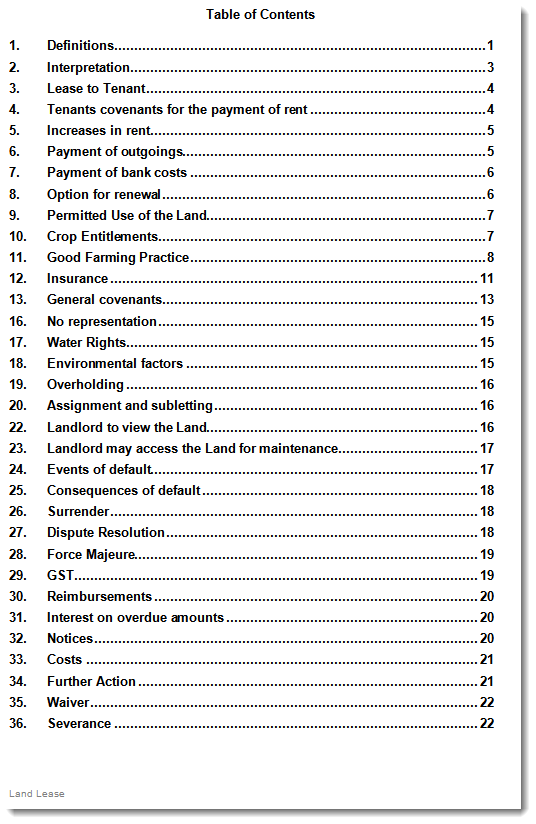
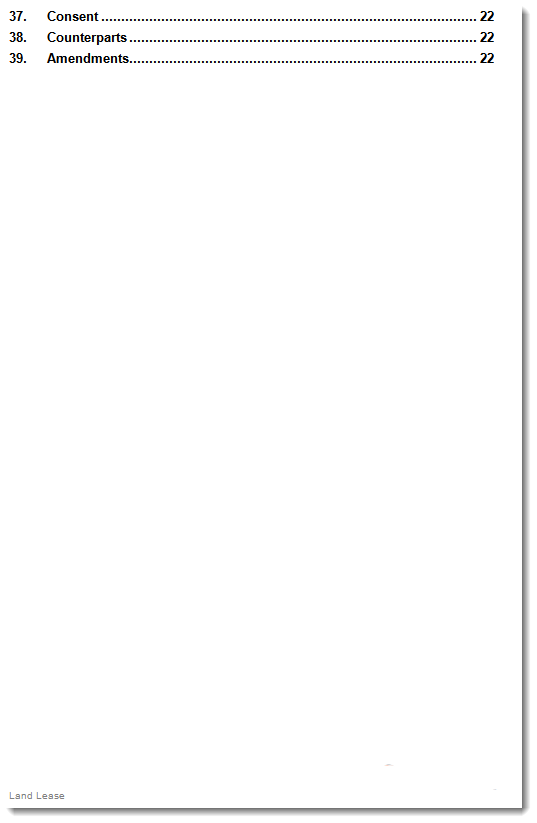
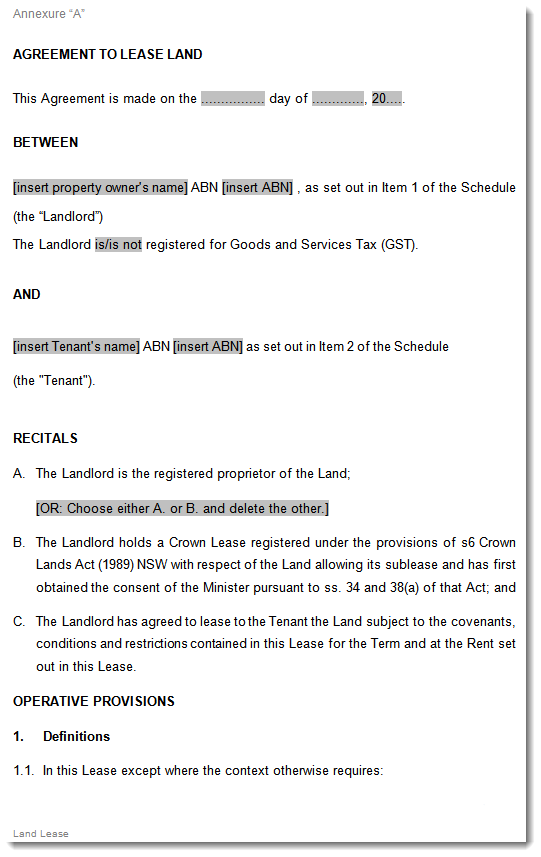
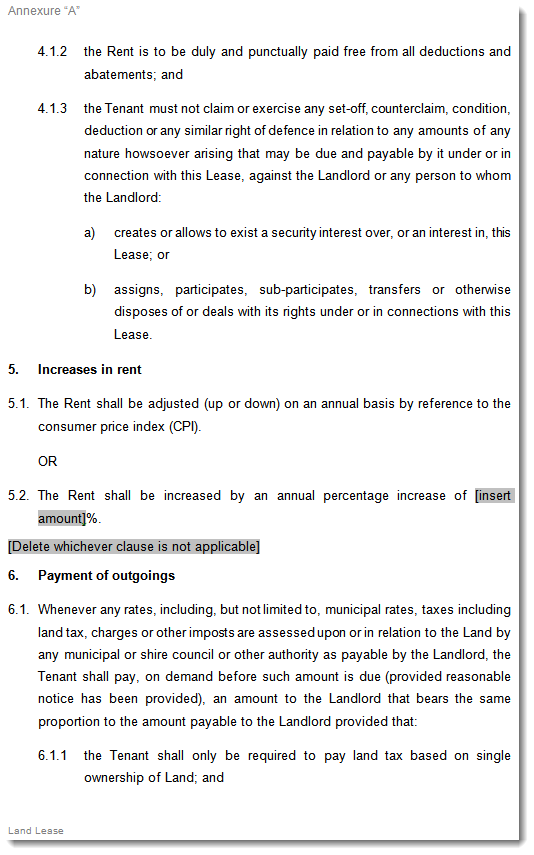
 Buy and Download New South Wales Land Lease Template
Buy and Download New South Wales Land Lease Template
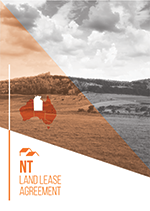 Buy and Download Northern Territory Land Lease Template
Buy and Download Northern Territory Land Lease Template
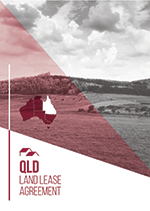 Buy and Download Queensland Land Lease Template
Buy and Download Queensland Land Lease Template
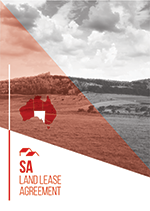 Buy and Download South Australia Land Lease Template
Buy and Download South Australia Land Lease Template
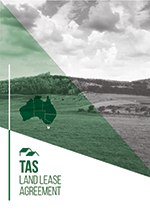 Buy and Download Tasmania Land Lease Template
Buy and Download Tasmania Land Lease Template
 Buy and Download Victoria Land Lease Template
Buy and Download Victoria Land Lease Template
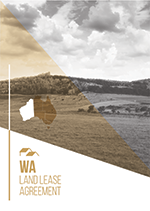 Buy and Download Western Australia Land Lease Template
Buy and Download Western Australia Land Lease Template